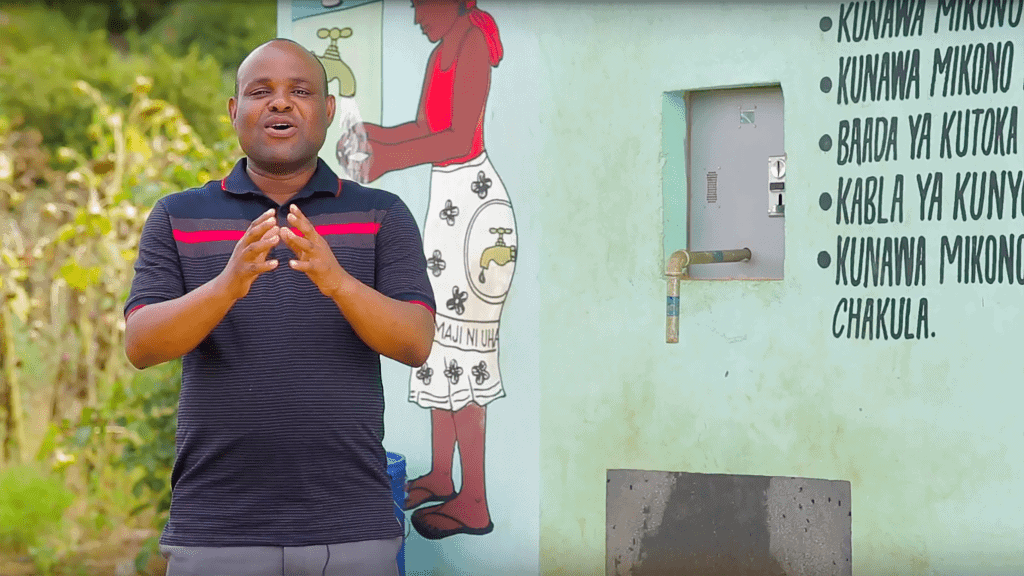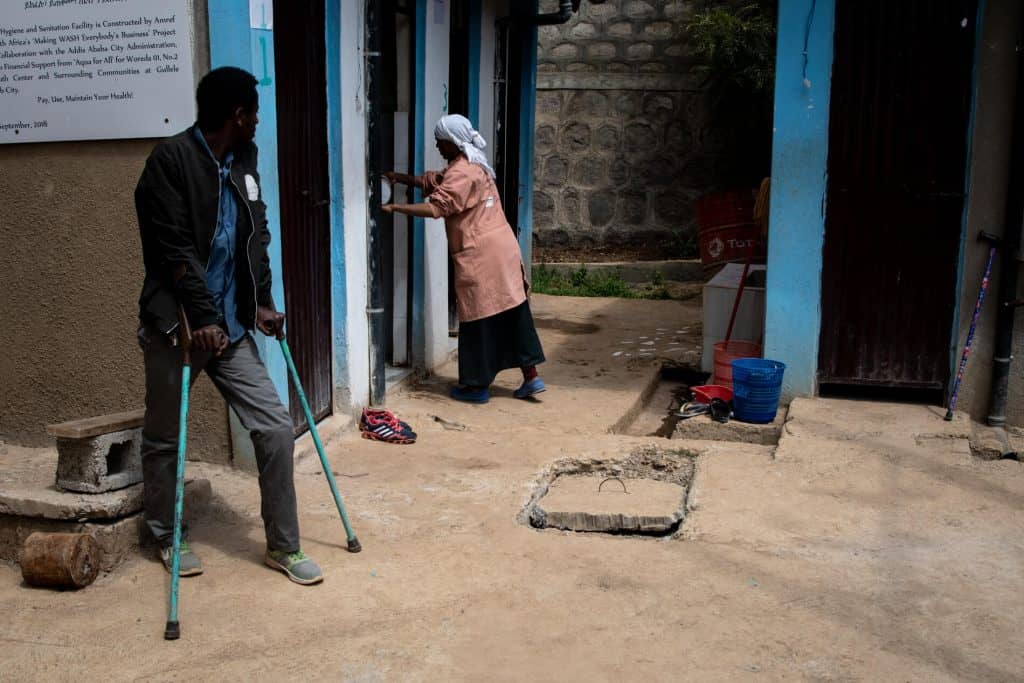THIS IS HOW WE OPERATE
On the map you can see where we work. Hover over the markers to view the projects.
We choose countries with permanent water scarcity and a relatively stable political situation.
In consultation with local partners, we work in places where we can make the greatest impact.
OUR RECENT WATER PROJECTS |
This is our meter reading
20533583248
LITER
We have already achieved so much clean drinking water in developing countries and that has more impact than you think:
Women have time to work again and children can go to school, giving them a better chance of a better life later. People no longer have to cut down trees to boil dirty water and it is no longer necessary to buy disposable bottles.
281282
people got access
143735
tons of CO2 saved
205336
tons of plastic waste prevented
3080037
trees saved
Our meter reading shows you the minimum number of liters of clean drinking water we have been able to produce since our start. We register the number of people given permanent access to clean water and hygiene, multiplied by a minimal daily use of 20 litres of water per person, according to United Nations reports.
We promise access to clean water and hygiene for at least 10 years after completing a water project, of course working hard to make our impact last even longer. We’re fair about potential
Each project is extensively checked before and during implementation.
LASTING CHANGE
Unfortunately, many well-intentioned initiatives did not live up to expectations. In sub-Sahara Africa it is estimated that about 50% of water pumps once installed by charities are no longer functioning. That is a tragedy! Obviously, that’s not how it should be at all and that is why we’re very serious about making impact last.
Therefore every project we engage in is thoroughly screened and fitted with a business model and ownership structure guaranteeing operation and maintenance for at least 10 years to come. This often means that users pay a small contribution for the water fetched at the facility, funds that are being used as savings for future repairs or even expansion.
That results in lasting change and a more sustainable society. The sustainability factor is even bigger as direct access to clean water often also means no longer having to boil polluted surface water over open fire or having to buy packaged water.
Of course sustainability is key in our own operation as well, developing solutions that contribute to lowering water footprints of products and services of the companies supporting our work.

Innovation
As there’s always room for improvement we also invest time and resources into optimizing the way we work towards access to clean water and hygiene for all. For example by running a pilot project with a water vending machine in Tanzania.
We’re aiming at challenging local communities not only taking ownership, but also coming up with new ideas and approaches towards access to clean water and hygiene for all. That is a conscious policy.
In the end we work towards the clear objective to make as much impact as possible with every Euro being invested.
knock-on effect
Water projects are fitted with a business model and ownership structure. This often means that users pay a small contribution for the water fetched at the facility, funds that are being used as savings for future repairs.
We often see that local communities are able to create additional water supplies on their own initiative based on modest income. Water points also attract other entrepreneurs. This creates a knock-on effect that has much more impact.

Active projects
These are currently ongoing projects enabling access to clean water and hygiene for all.
Sierra Leone: Water and nutrition at schools
With 7 water kiosks and the provision of milk powder for school meals, we help more than 55,000 people to a better future.
Read moreNepal: Water by Women
In Nepal we restore water supplies and teach women to manage them as a business.
Read moreSierra Leone: Water for a good start in life
We are helping young and expectant mothers and their children live healthy and safe lives by investing in health center facilities in Sierra Leone.
Read moreMalawi: Madzi for Malawi
In Malawi, more than 7 million people lack clean water. We are going to change this by building and repairing water points.
Read moreUganda: Wash, Learn & Share
In this follow-up of our WASH & Learn project in Uganda, we place an even greater emphasis on capacity building and sustainability, with a central role for entrepreneurs, women and girls.
Read moreBangladesh: Mini grids for households
In Bangladesh, mini water networks will provide 33,670 people with direct access to clean drinking water.
Read more“
We often see that local communities are able to create additional water supplies on their own initiative based on modest income. Water points also attract other entrepreneurs. This creates a knock-on effect that has much more impact.
Frank van der Tang, co-founder Made Blue
”
Latest updates
Progress for clean water in Uganda
Discover the progress in Uganda, where 12 out of 18 schools have gained access to clean water.
Read moreA successful start for clean drinking water in Malawi
Discover the progress made in the first phase of our water project “Madzi for Malawi”.
Read moreField Notes From Malawi
Discover what our donors experienced during our project visit to Malawi, from improved water access in health centres and schools to the daily realities of communities in Machinga and Zomba. A closer…
Read moreTwo water systems completed
Discover the latest news from Freetown, where the construction of two new water systems has been completed.
Read moreFinished projects
We recently successfully completed these projects.
Tanzania: Said’s water vending machine
Innovation and entrepreneurship in clean drinking water in Tanzania through the smart Water Vending Machine in collaboration with Simavi.
Read moreVietnam: Clean drinking water for minorities
Finally access to clean drinking water for a disadvantaged minority group in Vietnam, the Muong, in collaboration with World Vision.
Read moreEthiopia: Making water everybody’s business
An enterprising water project in Ethiopia lasting five years in the slums of large cities such as the capital Addis Ababa.
Read moreIndia: Water for remote villages
1,165 families in the Kadapa District in India will have direct access to water thanks to 10 new borewells.
Read moreEthiopia: Water and sanitation at and around schools
Children in Ethiopia will get access to water and sanitation at school and the neighbourhood benefits as well. In collaboration with Amref and Castalie.
Read more